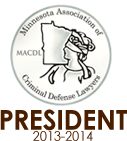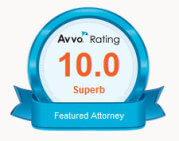I answer telephone calls 24 hours a day for people who have been placed under arrest for DWI. And I am often asked by the person under arrest if they should submit to testing. Most people have never been arrested before and they do not know if they should submit to testing (breath, blood or urine) or not.
The answer, I am afraid is: It depends!
Most people will test between .08% and .16% alcohol concentration level. For those people, taking the test is the correct choice as they would then be charged with a misdemeanor offense with a maximum punishment of 90 days in jail and a $1,000.00 fine. Their license revocation period would be for 90 days with a limited license after 15 days.
If, on the other hand, the person refuses to submit to testing, the penalty is a gross-misdemeanor with a maximum punishment of one year in jail and a $3,000.00 fine. The license revocation period is for one year with a limited license after 15 days.
If, however, the person under arrest knows that their preliminary breath test (PBT) was over .16%, then deciding to submit to testing may not be in their best interest.
If a person tests a 16% or more alcohol concentration level at the police station, then the penalty is a gross misdemeanor (the same as a refusal) but the license revocation is for one year and the person is not eligible for a limited license. In addition, the plates on any vehicle registered to the offender must be impounded and the only way a person can thereafter legally drive is with an interlock device installed on their vehicle and all of their vehicles must have “whiskey plates”.
Plate impoundment does not occur on a first time refusal.
In addition, if a person enters a guilty plea to the refusal charge, the license revocation period is cut to 90 days and if the case is reduced to a misdemeanor DWI, the license revocation is further reduced to 30 days. This benefit is not available to a first time 16% (or more) offender.
In other words, say the offender tests at .16% at the police station and the case is reduced by the prosecutor to a misdemeanor DWI: The offender still has to do the one year license revocation and the plate impoundment, with whiskey plates, would also still be in effect for one year even though the criminal charges were reduced.
I will never tell a potential client to refuse to submit to testing. but I will advise the client of the consequences of their decision to allow them to make an informed choice on testing.This is why it is very important for an individual arrested for a DWI to exercise their right to counsel prior to testing so that they are aware of all of the consequences of their decision to submit to testing.
If this is your second offense (or more) click here.
Contact Minnesota DWI Lawyer F. T. Sessoms:
If you or a loved one have been arrested for a Minnesota DWI, or are facing a DWI forfeiture of your motor vehicle, feel free to contact Minneapolis DWI Lawyer, F. T. Sessoms at (612) 344-1505 for answers to all of your Minnesota DWI questions.






